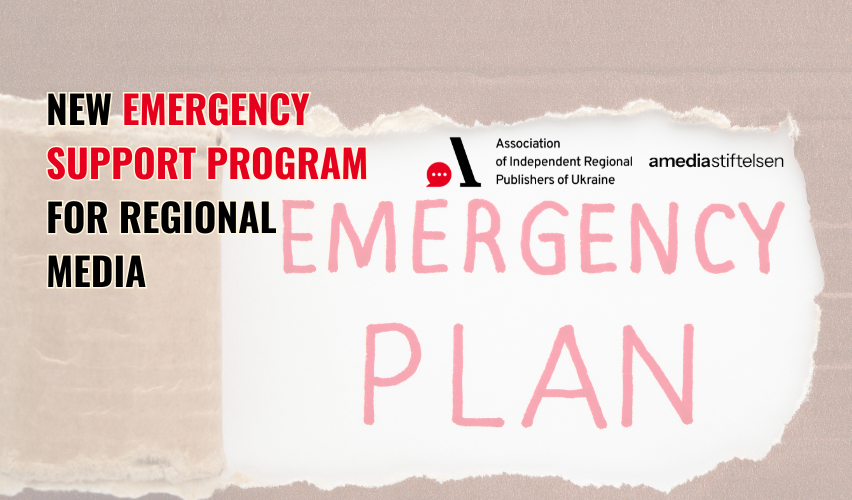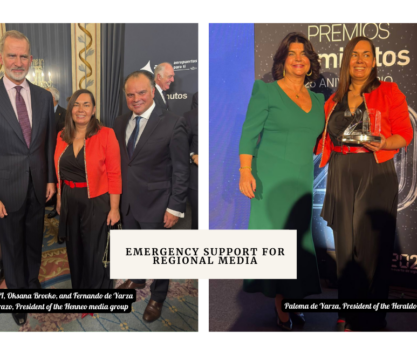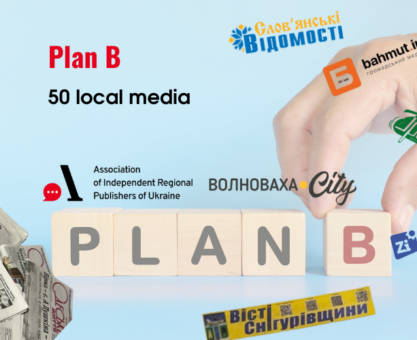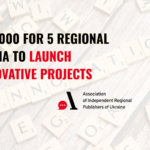AIRPPU and Amedia Foundation launch a new Emergency Support Program for regional media — for editorial teams working under challenging conditions and creating socially significant content. Up to 15 participants will receive a total of 80,000 euros.
The Association of Independent Regional Press Publishers of Ukraine (AIRPPU), in partnership with the Norwegian media company Amedia Foundation, announces the launch of a new Emergency Support Program for Regional Media. This initiative builds upon the logic of the Plan B project, aiming to strengthen independent journalism during wartime. The announcement was made today at the opening of the XIV Media Congress.
The program is aimed at editorial teams that have suffered serious consequences of the war over the past three months — shelling, destruction, loss of equipment, or forced evacuation — and that continue to work under extremely difficult conditions, producing socially significant content.
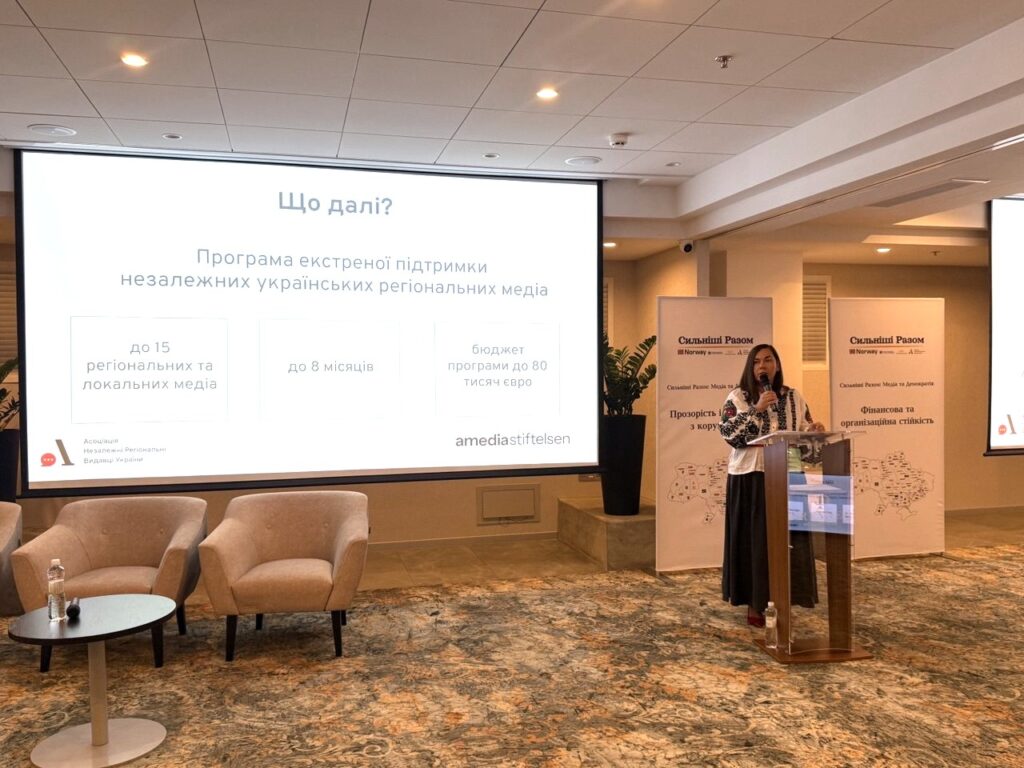
Plan B, launched in February 2025, was a response to the sudden termination of funding from American donors. During six months of the project, dozens of editorial teams were supported, some of which found new strategic partners.
Read more about the results of Plan B in the article: Plan B: When Journalism Holds the Country Together
However, many media outlets remain in critical condition — and it is for them that the new Emergency Support Program has been created.
“The Plan B initiative successfully provided assistance to editorial teams after the loss of American donor support. But given the ongoing war, there are many other critical situations when help is needed immediately. This program is designed specifically for such cases. Within this program, we will be able to support up to 15 editorial teams with a total amount of up to 80,000 euros,” says AIRPPU CEO Oksana Brovko.
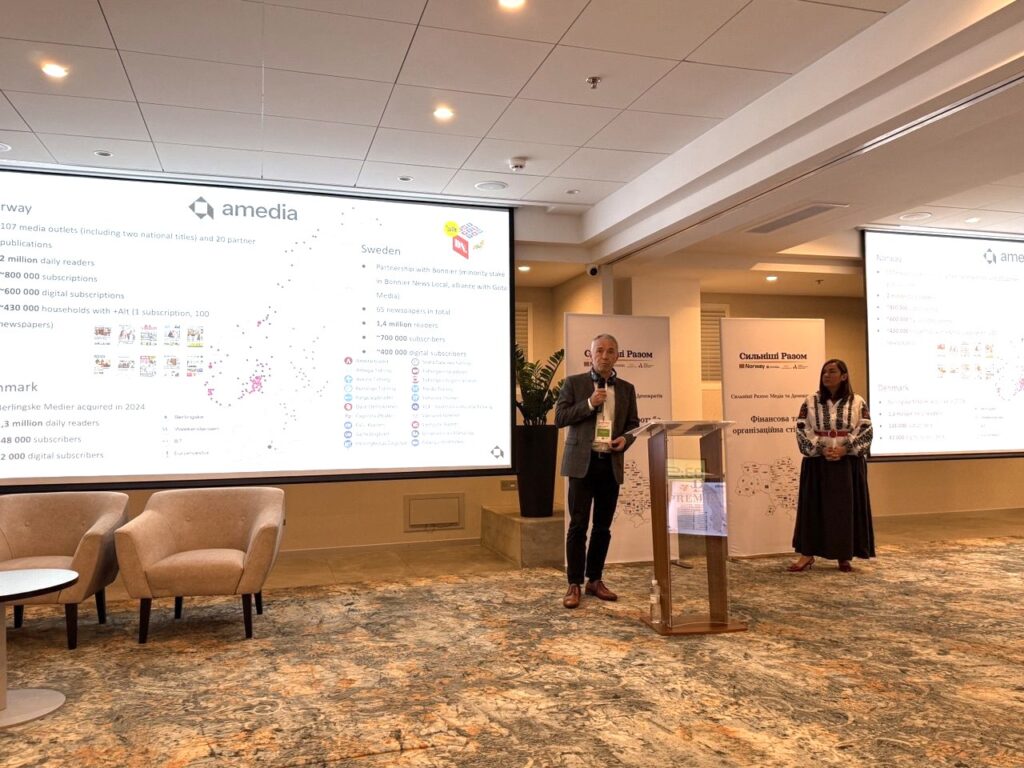
You can apply for participation by filling out the form.
Purpose and Objectives of the Program
The program aims to preserve and strengthen independent local and regional editorial teams that produce informational print and online media facing the greatest pressure from the war.
Main objectives:
- Provide urgent assistance to editorial teams severely affected by extreme conditions (hostilities, evacuation, loss of resources).
- Support journalistic teams capable of effectively using resources to create socially significant content.
- Ensure uninterrupted public access to reliable and verified information, which is critically important in times of crisis.
Who Can Receive Support?
To ensure that assistance is effective and well-targeted, selection will be based on transparent criteria that consider both the level of risk for the editorial team and its capacity to fulfill its social mission.
1. Severity of the problem
- The publication is located or operates in a region with:
• active hostilities or regular shelling,
• mass power outages, editorial evacuations,
• loss of equipment or premises as a result of the war. - A sharp decline in revenue over recent months directly caused by the war.
- Documented losses or threats to the continuity of operations.
2. Motivation and capacity of the team
- A clear understanding of the publication’s mission and strategic vision, even in times of crisis.
- A team of at least three active members (journalists, editor, manager).
- A stable communication channel with the audience (website, social media, print).
- Readiness to quickly resume or scale up operations after receiving support.
3. Socially significant content
- The publication produces local journalism of public importance.
- Commitment to objectivity and reliability, with established editorial standards.
- Direct engagement with the audience and regular content updates.
4. Transparency and accountability
- A legally registered entity with transparent financial reporting.
- Willingness to sign an agreement on targeted use of funds and provide a public report.
- Independence from political parties, officials, or business groups.
5. Regional influence and reputation
- Regional influence confirmed by website traffic, social media reach, or print circulation.
- Recognition among peers and the local community.
- No reputation scandals, disinformation, or propaganda activity.
This Program is our investment in the resilience, trust, and future of Ukrainian regional journalism.
